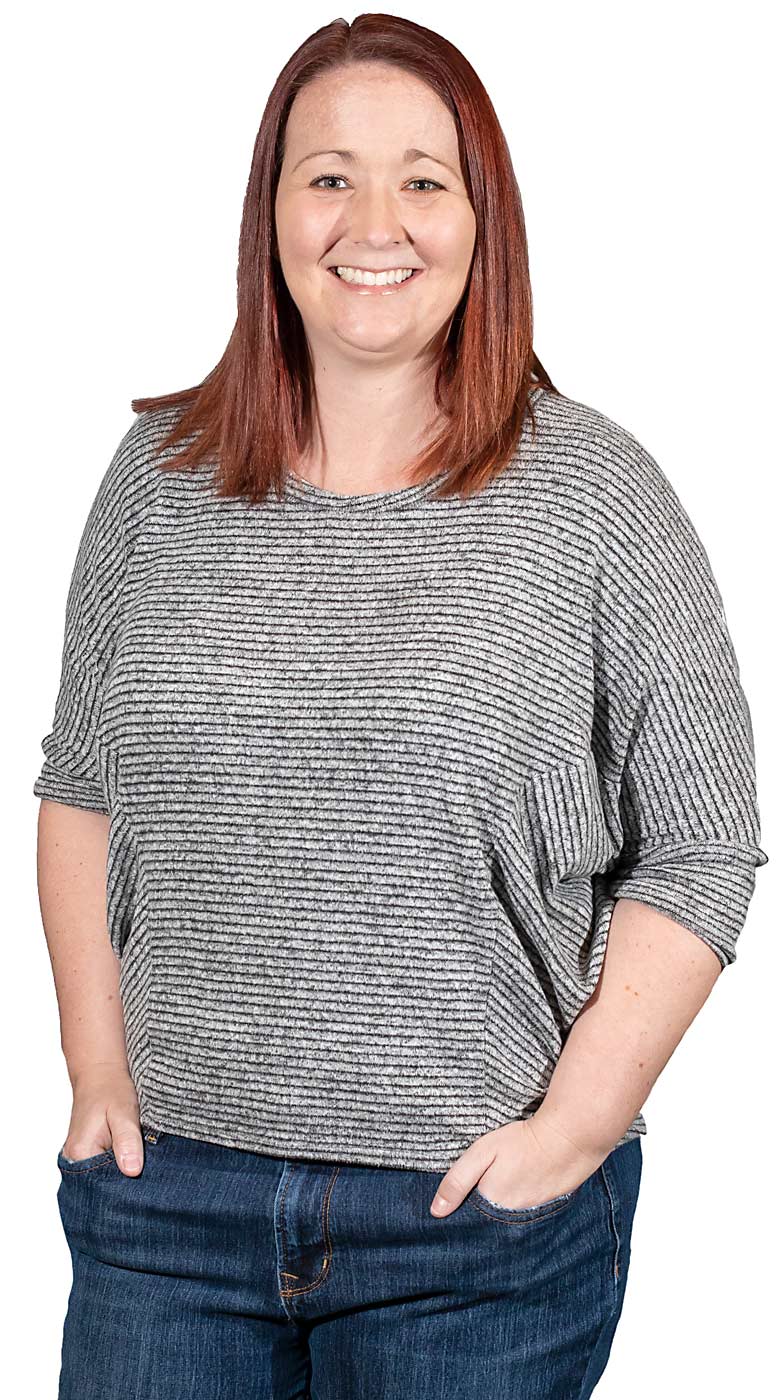family background / Brittany is the senior viticulturist — also known as the “grape lady” — at Precept. She obtained her graduate degree at Washington State University. She is the daughter of Gail and Leonard Komm and the granddaughter of Barbara and Arthur Komm.
grower / East Wenatchee, Washington
age / 33
crops / Grapes
business / Precept Wine Brands
How did you get your start?
I grew up out in the country, and every summer we’d always go up to my grandparents’ house in Omak, Washington, to help out during harvest.
Some of my best memories growing up were being on the tractor with my dad and grandpa.
Being from the Wenatchee area, apples and cherries were all around me, with orchards at the end of my driveway. Ag life was instilled in me from a very young age.
What did you learn from your family when you were young?
I remember being with my grandparents, seeing how they worked the orchards and watching them interact with employees.
My work ethic developed during that time because we all worked the farm. My first job was working in a cherry shed when I was 16 years old, and I had a few opportunities to learn from the WSDA (Washington State Department of Agriculture) inspectors.
I also had interactions with Japanese and Chinese buyers who were coming over to buy from the packing house. Those lessons really stuck with me.
Was the farm the only reason you pursued ag?
I ended up taking an agriculture class in high school and fell in love with it.
We started traveling so much to different contests around the state that included everything from resumes and interview skills to judging livestock and horticulture.
At one point, we were all required to do a large ag project during our senior year. I knew most of the class was going to do hay, alfalfa, potatoes, apples, cherries and pears, but I wanted to do something different so I could have a shot at winning the contest.
When I saw some orchards being pulled out and being replaced with wine grapes, I remember how crazy it looked, because they weren’t typically grown in the Wenatchee area.
They had these weird posts and wires and looked nothing like the common low-density, big-tree orchards. That contest and curiosity led me to pursue viticulture and enology at WSU.
I ended up having an opportunity to pursue my master’s at WSU with Michelle Moyer, and that concluded with us publishing my research project.
How did it benefit you pursuing your graduate degree?
Graduate school isn’t for the faint of heart. I initially went into it because I didn’t have a job opportunity right out of college. As soon as Michelle recommended that I work on early fruit zone leaf removal, I knew it was the right project for me.
When I was out in the vineyards, in the canopies diving into the science of viticulture, it hit me that this was what I wanted to do for a career. It was hard work, taking into account all of the hours, stress and reading that went into completing this project.
For anyone who’s looking to pursue their master’s or Ph.D., be prepared to dedicate your entire life to it for a few years. But the payoff can be great depending on what field you’re going into.
I wouldn’t have the job I have now had I not returned for my master’s degree.
Have you been able to use any of your research at work?
Right out of the gate, my former boss wanted to test my master’s thesis in a commercial vineyard.
I remember thinking that I’d only used a couple hundred vines for my thesis, and they wanted to use it on three different Riesling blocks that were over 10 acres each. Before starting, I asked whether I’d still have my job if it didn’t work out — and I was assured that I would still have a job.
That year we reduced all rot sprays and didn’t drop any fruit in one block. That block also was raised to a reserve vintage, which it had never made before.
Because it worked, we are using leaf removal work on several other blocks now, including red blocks that are destined for our high-end programs. We have also turned around a few blocks that were probably going to be ripped out because they weren’t performing well.
For anyone curious, the title of that research project was “Early fruit zone leaf removal in Riesling and Sauvignon Blanc in Eastern Washington to help reduce the incidence of botrytis bunch rot.”
—TJ Mullinax







Leave A Comment